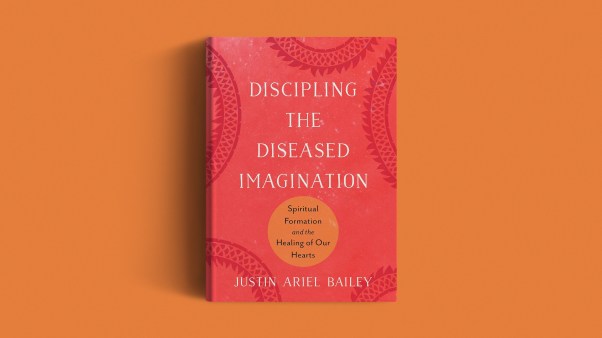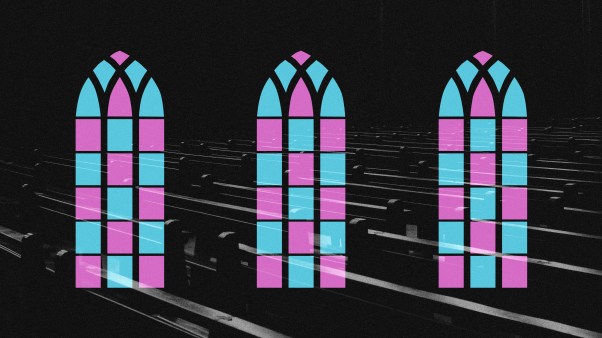In the wake of last year’s election season, many of us have been asking difficult questions about our nation and ourselves. Can we restore a sense of shared American identity despite our differences? Is it possible for the church to engage in politics without getting stuck in familiar partisan ruts?
Underneath these larger issues are questions about the kind of people we’ve become in the internet age. Thinking back on all the tweets, videos, articles, comments, and memes I consumed as the election drew near, I’ve begun asking myself: “Was it worth it?” Once I had decided on my preferred candidate and done what I could to advocate for my neighbor, did all the time and energy I devoted to reading, watching, and responding online benefit me personally? Did it make me a better citizen of heaven (or Texas)?
Of course, 2020 was a strange year, and it is hard to imagine how we would have coped without the internet. We needed up-to-date information about the spread of the coronavirus, and we needed ways to connect with our church communities during lockdowns. Tragically, it took seeing the murder of George Floyd to jar many of us into acknowledging the realities of injustice in our country. And in an election year, of course it’s important to be an informed voter, from the president down to the county commissioner.
Yet for all the good the internet brings, my guess is that most of us would admit that our media usage hasn’t been altogether healthy over the past few years. Many of us can readily recall Donald Trump’s “Covfefe” tweet, the fly on Mike Pence’s forehead, or the latest celebrity-pastor hot take, even if it’s been forever since we read a novel. A disorder running this deep won’t be fixed by spending a little less time checking Twitter. We’re long overdue, it appears, for a major overhaul of what we consume and how we consume it.
Craving Perpetual Novelty
Brett McCracken aims to reset our media priorities in his new book The Wisdom Pyramid: Feeding Your Soul in a Post-Truth World. McCracken, a seasoned film critic and a senior editor for The Gospel Coalition, draws on the familiar image of the food pyramid, which helps us visualize what we should eat and in what proportions. At the base of the pyramid are healthy foods like fruits and vegetables, which should form the foundation of our diet, while less healthy things we should eat in moderation, like sugars and red meat, appear in the narrower sections up top. Instead of helping us resist the pandemic munchies, McCracken wants to guide us toward realigning our intake of media and the world around us, so that we are formed in wisdom rather than folly.
McCracken begins the book with an exploration of what can happen when we suffer from this kind of imbalance. Like a doctor diagnosing the consequences of overindulging on sugary and fatty foods, he describes what the past two decades of always-on internet consumption have wrought. We see the ways information overload can lead to feelings of anxiety, stress, and powerlessness. Even though we realize this to some extent, McCracken says we still crave “perpetual novelty,” which prevents us from thinking deeply and makes us more susceptible to things like fake news.
This constant rush of newness only serves to accelerate a feedback loop of deeper anxiety and compulsive clicking. And the end result, says McCracken, is a turn toward self-centeredness, where we tend to focus on “looking within” and “finding our truth” rather than submitting to realities outside of ourselves. When we do find a few moments of solace, we are quickly distracted by yet another breaking-news notification. McCracken acknowledges that many of these problems predate the internet, but he argues that digital media have amplified and intensified them.
Most readers will likely see something of themselves (or perhaps of a friend on Facebook) in what McCracken describes in these opening chapters. We know we can’t fully unplug from the internet, but we sense that something is deeply wrong with how we use it. This is where the logic of the wisdom pyramid comes in. Just as Augustine urged us to rightly order our loves, McCracken contends that growing in wisdom involves rightly ordering our intake of the world around us.
At the bottom of McCracken’s pyramid, occupying the largest space, is the Bible. Then, moving up the pyramid, there are progressively smaller layers for five additional wisdom sources: the church, nature, books, beauty (films, art, music, and so on), and finally, the internet and social media. In other words, Scripture and the church should be our primary formative influences. And partaking of the natural world, books, and beauty can greatly enrich our lives. But the internet and social media, while not intrinsically harmful, should only be consumed in smaller doses.
The wisdom pyramid offers something beyond a quick media fast or a simplistic exhortation to “put down your phone and read your Bible.” Instead, McCracken wants us to rethink the world around us and how we apportion it. He reminds us of the importance of things like spending time in nature, which, in a digital world, can help us “feel our createdness . . . and feel closer to our Creator.” And he urges us to avoid “filling our senses . . . with whatever micro-spectacle comes across our feed.” Instead, we should carefully curate what we consume, leaving space for contemplation.
McCracken also offers practical recommendations for reconnecting with these sources of wisdom or reviving practices we’ve long neglected. For example, in his chapter on books, he draws on authors like Alan Jacobs, who reassures us that we can read what interests us rather than trudge through every book we don’t enjoy. Each chapter concludes with a set of probing questions that should prove immensely helpful to anyone contemplating a reset.
Rightly Ordered Lives
McCracken’s wisdom pyramid is not intended as a literal guide for how many minutes to spend drawing from each source; its purpose is to spur reflection on how we spend our days and what kind of people we become as a result. As we reflect on the election and the challenges of 2020, pondering what it will take to emerge from our hyperpolarized age, we’ll need to think carefully about more than just our media portion sizes. We’ll also need to consider how the items at the top of the pyramid tend to trickle down and overflow into those on the bottom, for good and for ill.
In other words, it’s not merely that our wisdom diets are too heavy on the processed junk of the internet and social media and too light on the staple foods of God’s Word and his church. More worrisome, perhaps, is how our appetite for the former can spoil our taste for the latter.
For example, a pastor friend of mine in the Dallas area recently told me that one of his congregants complained about his sermon series on Micah, protesting that he needed to preach “more Paul and less prophets.” Evidently, Micah’s emphasis on justice and mercy seemed uncomfortably close to perspectives the congregant had learned to disapprove of online. Like most evangelicals, this person would likely think of himself as having the Bible and the church at the base of his own wisdom pyramid. And yet it seems that something else in his life is spilling down over it and seeping into everything else. He, like all of us, needs to examine not just his media intake but also how the world he inhabits colors the way he reads Scripture (and influences which Scriptures he prefers to read).
That is not to say that the upper layers of the pyramid should never influence how we see the church or interpret Scripture. Indeed, another factor worth considering alongside McCracken’s pyramid is the role of diverse human relationships. In the category of the church, McCracken invites us to consider how other believers can challenge, encourage, rebuke, and pray for us.
But relationships outside the church—or at least outside our own church—are also vitally important in forming our souls. Sometimes listening to those outside our normal life spheres (and our social media bubbles) is what brings new wisdom, creativity, and insight. These encounters can also inspire fresh understandings of Scripture and God’s love for his creation.
At its best, the internet can be a place where we cconnect with those who differ and confront both the joys and sufferings of those we only rarely encounter. Unfortunately, it seems that our subjugation to algorithms often stultifies our thinking and pushes us further apart. Rather than learning to converse in meaningful ways, we tend to fill our online discussions with empty talk and virtue signaling.
This underscores our need to find new ways of forming significant relationships with our literal neighbors. As we (hopefully) emerge from the pandemic lockdowns this year, we will enjoy a window of opportunity to rebuild an infrastructure of care and concern for those around us, drawing all of us deeper into the way of Jesus.
Before engaging in such a lofty task, however, we must have our own lives rightly ordered. Toward this end, McCracken helpfully closes The Wisdom Pyramid with what he calls “marks of wisdom”: cultivating discernment rather than reading and consuming indiscriminately, exercising patience rather than going too fast, and practicing humility rather than constantly focusing on ourselves.
Wise words indeed.
John Dyer is a dean and theology professor at Dallas Theological Seminary. He is the author of From the Garden to the City: The Redeeming and Corrupting Power of Technology.











